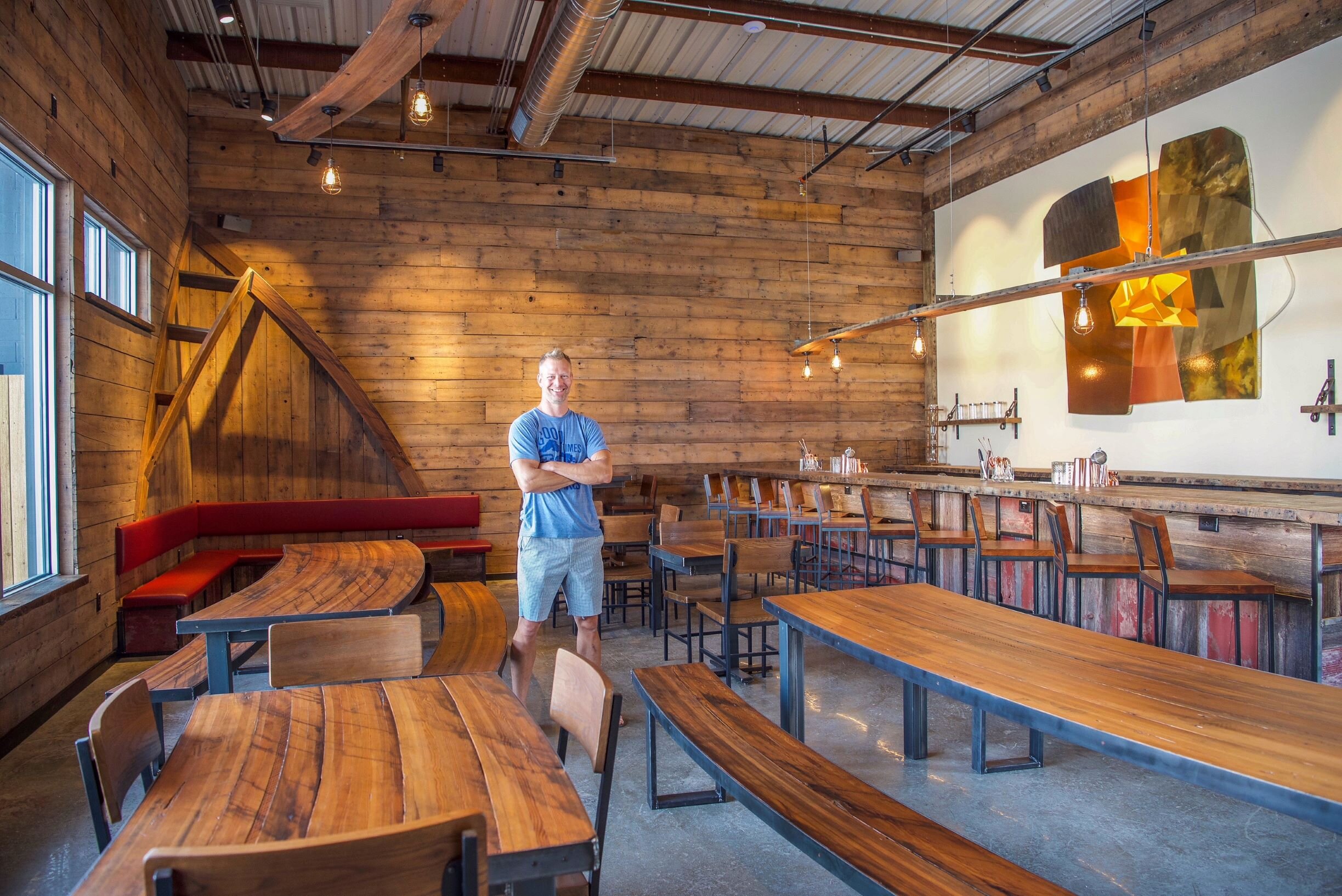Waste Worthy of Greatness: State line Distillery -Madison, Wisconsin
Farmers aren’t wasteful by nature. They always want to get the most bang for their buck when it comes to labor, machinery or facilities, but times they are a changin’. The barns of yesterday were built for the equipment and the work of their time. This means smaller horse drawn equipment and storage for a farm supporting a single family, which could mean only ten to thirty milking cattle. Today’s farms may milk several hundred cattle and house gigantic equipment to raise crops to feed thousands of people or animals. Today’s needs would never fit in the barn that grandpa or great grandpa built. The health of the old barn is at risk in this situation. The best way to keep a barn in healthy working order is to keep it full of something and keep the roof in good repair. If either of these two items are ignored, the life of the barn is diminished by decades. Once a barn loses its integrity it is extremely costly to bring it back to working order and if it’s not needed for current operations….well, remember when I said farmers aren’t wasteful? This is when I get a call.
Me: “This is Jeremiah.”
Farmer: “I hear you take down barns.”
Me: “I do.”
A Project from the Nordeng Barn -
98% Reclaimed material.
The entirety of this project is founded on an ecological principle of upcycling Wisconsin’s proud heritage and landscape into art for future generations, preserving the history of these buildings while bringing awareness to the need for us all to think before we consume. Every piece starts with a question; how can I transform material slated for refuse into beauty, value and a new life in our community?
Almost every part of the tasting room at State Line Distillery in Madison, Wisconsin, right down to the fasteners on the trim are reclaimed from the Nordeng family farm built along the Yahara River in DeForest, Wis. in 1947. Originally homesteaded by Joseph Endgeseth, second owner, Adolf PH Nordeng, bought the property in the winter of 1944. He began harvesting the oaks from across the river in ’46 to build the barn with his brother Paul Olson and teenage son, Ron, the following year. The barn was the centerpiece of the farm that raised corn, alfalfa, oats, tobacco and dairy cattle into the 1990’s. It was retired in 2016 by artist Jeremiah Logemann of Flags Over Wisconsin.
The shiplap roofing boards of the barn are now the tasting room walls. Those boards were nailed to the arched rafters which are now the tables, nook and light fixtures. The oak floor trusses of the haymow are now the bar tops, drink rail and window sills. The bar face is siding from the tobacco barn down the road and the legs of the coffee table are pulley wheels from a tractor that would have powered the saw to cut the lumber.
The part of this project that hits me square in the heart most of all is that the oak trees that grew from seed along the Yahara River roughly 140 years ago and then built the barn are now the bar top, window sills and trim work and still to this day are no more than a few hundred yards from the Yahara just up the street.
The building itself, the dilapidated Northern Plating Company building was due to be torn down and was a reclamation project in and of itself. The culmination of general contractor Supreme Structures, the architect Kirk Biodrowski of Sketchworks Architecture, John Mleziva, owner of Stateline Distillery and myself Jeremiah Logemann of Flags Over Wisconsin caught the eye of the industry, winning the award of “Most Green Building Solution of 2017” from InBusiness Magazine among projects like the Northwestern Mutual Tower of Milwaukee and the University of Wisconsin’s new Union Terrace.
John started his dream business of a grain to glass distillery within days of his first born daughter being born. His masters degree in brewing and distilling earned in Scotland along with his finely tuned approach to small batch spirits and his attention to details is unmatched and shows in every glass. It’s a grand show to watch his team build you a cocktail from raw ingredients grown or made right onsite. I hope that you have the opportunity to visit John soon for a personal tour and a taste of what Wisconsin grains can offer your pallet.








